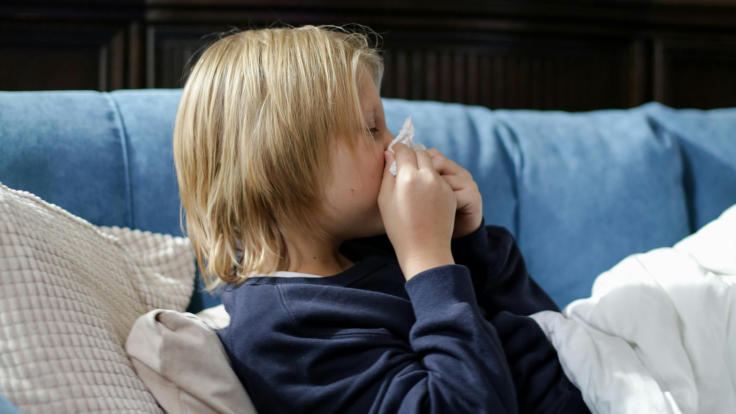Whooping Cough Is Back In The UK. What Is It, And What Can You Do To Protect Yourself From It?
First UK death from whooping cough in 2025 prompts renewed warnings as childhood and pregnancy vaccination rates continue to decline

A baby has died from whooping cough in the UK, the first recorded death from the disease this year, as vaccination rates among pregnant women and children reach their lowest levels in over a decade.
The infant, who was under one year old, became seriously unwell and died between March and June 2025, according to the UK Health Security Agency (UKHSA). The mother had not received the recommended vaccine during pregnancy, which can pass vital protection to newborns in the womb.
Health officials say the case highlights growing concerns over falling immunisation rates and a rise in preventable infections.
What Is Whooping Cough?
Whooping cough, or pertussis, is a highly infectious bacterial disease that affects the lungs and airways. It spreads through tiny droplets when an infected person coughs or sneezes and can cause severe illness, especially in babies under six months old.
Early symptoms often resemble a common cold — runny nose, mild cough, and fever. However, after one to two weeks, coughing fits may worsen and include choking, vomiting, and a high-pitched 'whoop' sound when breathing in.
@healthnewzealand Whooping cough is a serious illness anyone can catch, but it's babies most at risk. Around 50% of babies that get whooping cough before 12 months old need hospitalisation, and 1 or 2 in 100 of those hospitalised babies will pass away. Protect your baby by getting immunised from 13 weeks of pregnancy, then get baby immunised from 6 weeks old, 3 months and 5 months. If you're going to be around a newborn, get a booster.
♬ original sound - Health NZ | Te Whatu Ora
Why Is It Dangerous?
While most adults and older children recover without complications, whooping cough can be life-threatening for infants. Serious risks include pneumonia, seizures, dehydration, and, in rare cases, brain damage or death.
Some infants may not cough at all but can stop breathing for short periods or turn blue during episodes. These cases often require hospital treatment, especially in babies too young to be fully vaccinated.
In 2024, 11 children in England died due to a rise in whooping cough cases. The recent infant death brings renewed attention to the threat the disease poses to young children.
Vaccine Rates At 15-Year Low
Uptake of vaccines that protect against whooping cough has fallen to its lowest point in 15 years. According to UKHSA data, only 81.4% of five-year-olds in England had received the four-in-one booster against polio, diphtheria, tetanus and pertussis by the time they started school.
Pregnant women are advised to receive a pertussis vaccine between 20 and 32 weeks to protect their newborns. While coverage among expectant mothers has risen to 73% this year, it remains well below the 76% peak recorded in 2016.
Health experts warn that current coverage is not enough to prevent serious illness and deaths during outbreaks.
How You Can Protect Yourself And Others
The best protection against whooping cough is timely vaccination. Children are usually given five doses of the DTaP vaccine at 2, 4, 6, 15-18 months, and again between 4-6 years of age.
A booster known as Tdap is also recommended for pregnant women between 27 and 36 weeks, children aged 11 or 12, and adults every 10 years, particularly if they are in close contact with infants.
People living in the same household as a baby or someone at high risk should ensure their vaccinations are up to date. Booster shots help prevent the spread of infection to babies who are not yet fully immunised.
See a healthcare professional if you or your child has a cough lasting more than one week, coughing fits followed by vomiting or breathlessness, a 'whooping' sound when breathing, or difficulty eating, drinking, or sleeping due to coughing.
Call emergency services immediately if a baby stops breathing or turns blue, struggles to breathe, or shows signs of seizures or unresponsiveness.
What's Changing in 2026?
From 2026, the NHS will introduce a new combined MMRV vaccine, which adds chickenpox protection to the existing measles, mumps and rubella jab. Health agencies hope the combined vaccine will improve overall uptake.
But for now, whooping cough remains a serious and preventable threat, especially to the very youngest. Vaccination remains the only reliable way to reduce the risk.
© Copyright IBTimes 2025. All rights reserved.





















